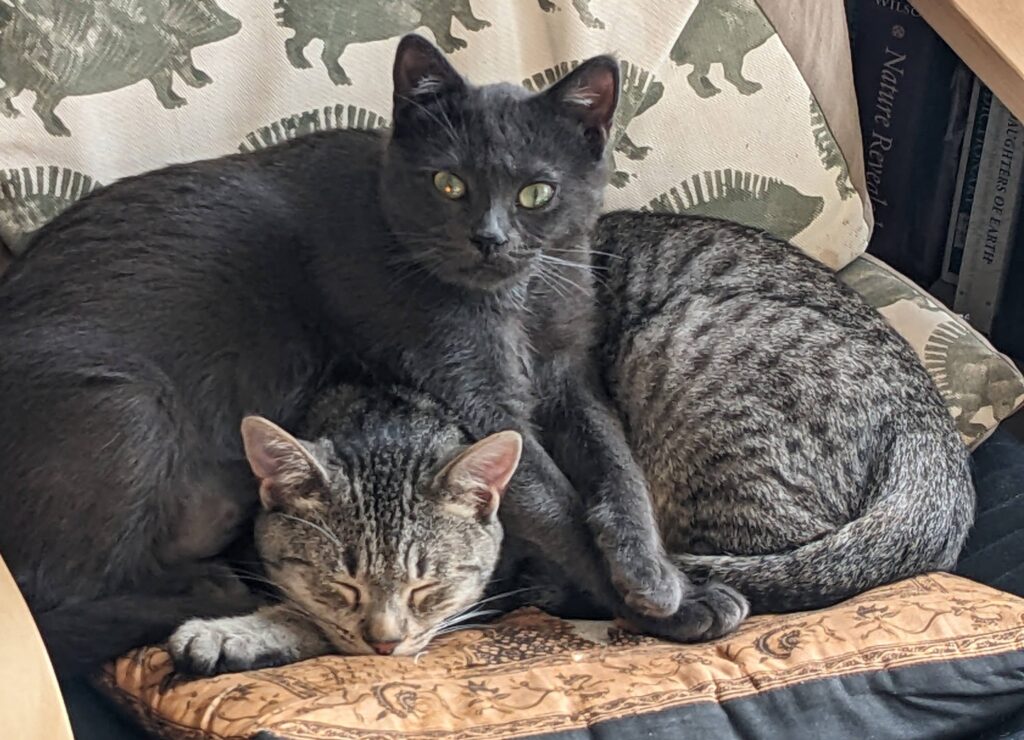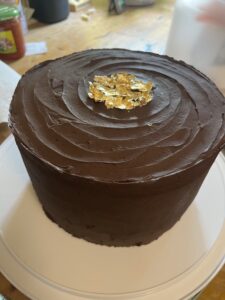I haven’t forgotten that I was going to introduce tsedakah last week. Stuff happens. And then more stuff happens. Much of the stuff has links to matters Jewish.
First we had the Bondi murders, and then a major literary conference fell to bits largely because of internal clashes about ethics. These internal clashes became a national mess. And now, Parliament’s back early and we had so many kind words about those lost at Bondi, and a national day of mourning later in the week and I think the whole country is confused. The latest political opinion poll suggests this. A far right party is coming out of the shadows and making one of the two largest parties in the country scared. The far left has most of its old vote, but not all. And our prime minister has lost most of his personal support: if Labor want a safe election next time, they might need to change their leadership. Or not. Labor is stubborn and full of factions.
All this pales compared with what’s happening in the Middle East, in Iran, in the US, and even in the UK. But it’s our mess, and we must handle it. One thing I would like to see us return to is civil society. Discussions and analyses rather than street marches.
Why? The big Sydney Harbour Bridge march last year had a lot of wonderful people doing what they thought was the right thing. Marching alongside them in support of Gazans were the Bondi shooters, and the rather antisemitic writer who upset the applecart in Adelaide and led to one of the most important writers’ festivals in the country being cancelled. Marching alongside this writer was almost everyone I’ve seen who is loudly and opinionatedly antisemitic. Many of these individuals were grouped near a guy holding a picture of Khomeini. I don’t know if it was a photo op, or if all these people actually work together, but the cluster of them in the most famous photo of the march indicates a cluster of problems.
It’s going to be difficult to roll back the performative and to return to the Aussie politics I used to know. I’m not connected in the way I used to be. I was pushed out of the behind-the-scenes stuff through being too Jewish and too ill. Australia admires health. It also has this really stupid habit of sweeping people who belong but should not be heard under the front stairs.
Why am I thinking of front stairs?
I’m back in the Middle Ages this week and ought to be talking about foodways, but have been focused on trying to understand our current very strange politics. What happens when the Middle Ages is there and I try to pretend it isn’t? Literary references happen, most frequently.
The boy under the stairs was Saint Alexis being holy. I’m probably under the stairs, but being sarcastic. The sarcasm means that old friends and new sneak in to join me, and we watch the goings on and are surprised at how people we know to be intelligent get caught up in performance and leave a goodly portion of their intellect behind.
Tsedekah is much nicer, but must wait until life is less exciting.
Just for the record, I could have gone to Parliament House and heard all the sorrowful speeches today. Instead, I watched the second last season of Stranger Things and I did some work and filled in all kinds of questionnaires. I decided it was not wise to hear those who ought to have sorted out the hate when it was straightforward being terribly sorry at all the murders. All those people should still be alive. Synagogues and mosques should not be burning. And all the time we spend trying to find that bolted horse could have been spent in doing so many things that Australia needed.
It will be Purim soon and gifts to two charities are traditional for this festival. I’ve chosen two that are important to me. It’s early, but all this thought led me to think what I could do. One charity gives reading to children. Those children are very rural and living on the land of their ancestors. They do so much better when they have books that concern themselves and are written by people they know in the language they speak. The other is for OzHarvest, which helped me out when I was under the poverty line. It rescues food and makes sure that food reaches people who don’t have the money to buy it.
Maybe around Purim will be an appropriate time to explain why the books are more Jewish as a gift than the food. Not more Jewish. I’m explaining badly. Ranked more highly as a type of gift. You’ll have to wait until March for the explanation.
Tomorrow is research-for-writing. I am interviewing a group of Jewish teenagers for a novel. A rather special novel, and one that I was not expecting to write. It’s not a guaranteed publication, but it’s a guaranteed “I’d love to see this if you’d consider writing it.” It’s the kind of book I’ve been saying we need for the last 20 years, one where Jewish Australia is shown as the driver of a story about Jewish Australians. The US has many YA novels that do just this for Jewish readers, but Australia, far less so.
I’m also finishing a short story where the King of Demons meets a very English vampire in Sydney. I have other fiction happening, including a novel emerging later in the year, but this week everything is Jewish.
The more hate there is, the more I write Jewish stories and Jewish history. Hate has reinforced my Jewishness ever since I was a child. When I was accused of eating baby’s blood in unleavened bread (in primary school), I taught the accusers basic kashruth. These are the type of stories I always tell.
What I don’t always tell is the reason I learned the Grace After Meals (the long one, all in Hebrew). I was so annoyed with several bigots and I decided I would say it every single lunchtime until the haters stopped bugging me. I kept saying it even after they stopped bugging me. Also they would have stopped bugging me anyhow, but I didn’t know this until it happened.
They didn’t stop because I could babble in Hebrew. They stopped because I became the high school student everyone else needed to ask questions of, especially in the lead up to exams. I could teach and I remembered everything teachers’ said and I understood it all. This gave me a place to belong, a role that was so very much mine. After I put the siddur away, someone would sit next to me and ask “Gillian, do you remember the calculus from yesterday?” or, a couple of years later, “Gillian, tell me about this piece of Chaucer.”
What most Jewish Australians have been pushed out of are those places we belong in the wider community. Since Australia is so secular, this is rather more important than it looks. Changing definitions, not listening to our voices, not publishing our books, telling us we have to leave our home country because we’re Jewish, accusing us of all kinds of impossible crimes… this all smudges together and makes an everyday that’s very difficult to handle.
Every single Australian organisation that still accepts me as Gillian (right now, my professional Medieval one, the Tolkien folks, and the Perth science fiction convention) gives me a golden thread to hold and to guide me through this labyrinth. Every single one that cuts off that thread (more than one writers’ organisation), leaves me stumbling. I find my balance within Jewish Australian culture, because that’s the place where my identity is not questioned.
As has been said so many times about Australia, we’re a weird mob. This is just another facet of that weirdness.



 It was as I was making the cake that I realized I do have some very favorite kitchen tools: my instant-read thermometer, my kitchen scale, my decorating turntable, and my cake lifter. The utility of the instant-read thermometer is pretty obvious: no matter if you’re making fudge or rib roast, being able to know what the temperature of the object is can be crucial. When I bake bread I can be misled as to the doneness by the golden color of the loaf, but my instant-read thermometer will tell me the truth about the interior. If I’m making filling for a cake, the instant read thermometer will keep me from turning the it into something stodgy and unlovely. I use my instant read thermometer daily.
It was as I was making the cake that I realized I do have some very favorite kitchen tools: my instant-read thermometer, my kitchen scale, my decorating turntable, and my cake lifter. The utility of the instant-read thermometer is pretty obvious: no matter if you’re making fudge or rib roast, being able to know what the temperature of the object is can be crucial. When I bake bread I can be misled as to the doneness by the golden color of the loaf, but my instant-read thermometer will tell me the truth about the interior. If I’m making filling for a cake, the instant read thermometer will keep me from turning the it into something stodgy and unlovely. I use my instant read thermometer daily.